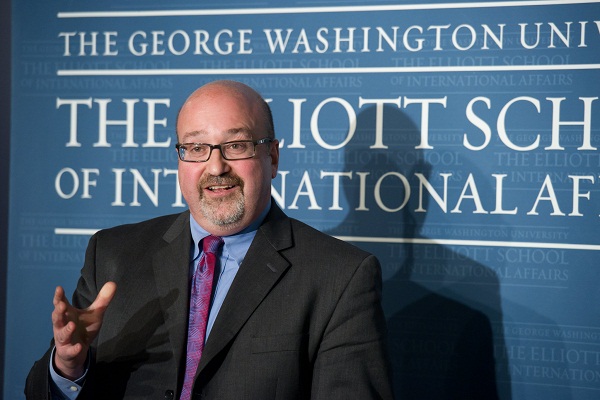Iran, US Will Eventually Strike A Deal: George Washington University Professor

“I imagine that the Biden administration will be looking for a deal that is slightly better than the one struck under Obama. And Iran will likely want the same for itself,” Michael Barnett told IQNA.
“But I predict the two sides will eventually strike a deal, unless there are even more serious and violent provocations from either side in the immediate future,” he added.
Michael Barnett is University Professor of International Affairs and Political Science at the George Washington University. His research interests span the Middle East, humanitarianism, global governance, global ethics, and the United Nations. In an interview with IQNA, he spoke about Joe Biden's policies in the Middle East and its future.
Following is the text of the interview:
IQNA: In recent days, we have seen the withdrawal of American troops from Afghanistan. Some believe that US President Joe Biden's move is irresponsible given the Taliban's rise to power in Afghanistan. What do you think?
Barnett: This would be irresponsible if the US withdrawal knowingly, and with some certainty, might harm US interests. The only thing that might do so is if Afghanistan became a safe haven for terrorists that impacted the US – and if there were no other options available for dealing with this scenario short of a constant American presence. But there are many other places in the world that are now safe havens. The US has other instruments for dealing with potential terrorist threats to the US coming from Afghanistan.
IQNA: What was the main reason for the withdrawal of American troops from Afghanistan?
Barnett: The definition of insanity is repeating the same mistake over and over with the hope that the outcome will be different. Twenty years with little show for it. Those who pledge continued presence have no foreseeable exit option. And a possible exit does not raise the possibility that Afghanistan will become, yet again, a security threat.
IQNA: Some say the recent clashes in Gaza indicated the ineffectiveness of the normalization agreement between Israel and several Arab countries, and that tensions in this part of the Middle East will continue. How does Biden's policy on the Palestinian issue differ from that of Donald Trump?
Barnett: Trump was an active facilitator of the end of the two-state solution and the rise of a Greater Israel. Biden will be a passive eyewitness. Normalization is simply a sign that many Arab states, who were never much concerned with the Palestinian cause, had decided that they could risk normalization – and that they would receive US and Israeli strategic support that would more than offset any possible damage to their prestige.
IQNA: Contrary to expectations, the Biden administration did not immediately return to a nuclear deal with Iran, and talks between Tehran and Washington in Vienna appear to have taken too long. What is wrong with the US returning to a nuclear deal with Iran?
Barnett: Nothing is wrong with the US returning to a nuclear deal, but the US wants to make sure that it remains the best deal it can get – which might be better than the previous deal.
Also, after the US withdrawal, Iran eventually decided to make its own provocative moves. Trump’s sanctions have taken their toll on Iran. Now both sides are testing and prodding each other. And we have two new governments in power in both countries.
I imagine that the Biden administration will be looking for a deal that is slightly better than the one struck under Obama. And Iran will likely want the same for itself. But I predict the two sides will eventually strike a deal, unless there are even more serious and violent provocations from either side in the immediate future.
IQNA: Do you think that with the election of a new president in Iran, there will be a change in the relations between Tehran and Washington?
Barnett: In terms of the big picture, and assuming that there are not aggressive provocations from either side, probably not. The presumption is that the hardliners have won in Iran and that there is little to be gained by reaching out – except for trying to avoid red lines. A big test will come if and when there are protests in the streets in Iran. What will the US do?
IQNA: How do you think Biden's policy will go during his four-year presidency in the Middle East?
Barnett: Biden will want to maintain the status quo at all costs. Things are beginning to settle into a much more authoritarian place in the Middle East. Across the Middle East there are few openings for any dramatic change in a peaceful direction. So, this will be about great power management, and nothing more.
Interview by Mohammad Hassan Goodarzi
 Most Commented
Most Commented 


